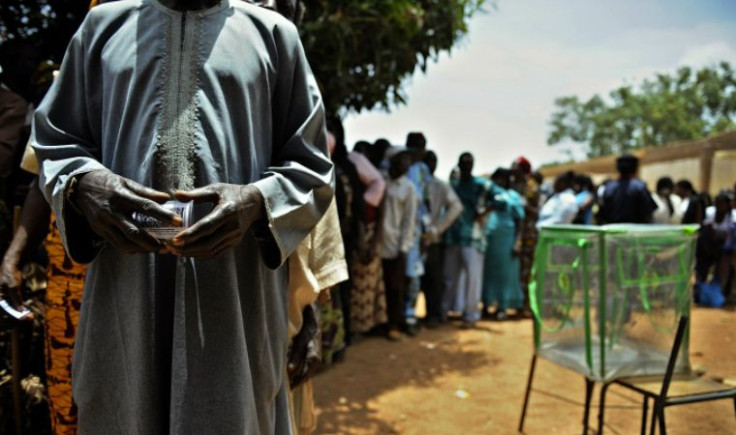Nigeria Elections 2015 Considered 'Peaceful' Despite Rising Death Toll And Violence

The death toll from election-related violence in Nigeria this year would be considered an atrocity in the United States and other Western countries. Yet the West African nation has so far received international praise for its "peaceful" elections despite dozens of deaths and violent protests. And the death toll is only expected to climb this week amid soaring tensions between rival political parties and their supporters ahead of the country's gubernatorial contests Saturday.
“We’ve seen a lot of improvements,” said Julia Hedlund, program manager at the International Foundation for Electoral Systems in Washington, which has worked with Nigeria’s Independent National Electoral Commission since 1999. “In Nigeria, unfortunately, they are more tolerant of some deaths than we would be in the U.S."
During the presidential election last month, suspected Boko Haram militants killed at least 41 people in northeast Nigeria, causing others to flee the polls. And thousands in the oil-rich south protested the alleged killings of opposition campaign workers and voting irregularities, which Nigeria’s election body has promised to investigate, the Associated Press reported.
More recently, the All Progressives Congress (APC) opposition party said this week that 55 of its members were killed in election violence in Rivers state. Meanwhile, one person was killed Tuesday during a massive protest by supporters of the ruling Peoples Democratic Party (PDP) in Ekiti state, a Nigerian newspaper said. The federal government said Wednesday it will close Nigeria's land borders until after the gubernatorial elections for security purposes, as it did for the presidential election.
Amid the violence, the African Union, the Commonwealth Observer Group, the European Union, the National Democratic Institute (NDI) and the International Republican Institute (IRI) congratulated Nigeria on its “commitment to a peaceful response to the election results,” in a joint statement this month.
The disconnect between the celebrations of peaceful elections and the violence across Nigeria in recent months underscores just how deadly Nigerian elections have been in the past, making some dozen deaths surrounding the ongoing elections seem like an improvement, some said. In 2011, more than 800 people were killed after Goodluck Jonathan was elected president.
"In any country, the loss of life is tragic. Nigerians recognize that," said Gretchen Birkle, director for Africa at the IRI in Washington. "The only way I think we can consider this peaceful is in comparison to 2011."
Increased transparency and credibility surrounding the voting process have also bolstered Nigerians’ confidence in the electoral system this year. The outcome of the March 28 presidential election that saw Jonathan lose power appeared to reflect voters’ wishes, which helped subdue widespread violence.
Jonathan and the other leading candidate, President-elect Muhammadu Buhari, signed two peace accords ahead of the March 28 presidential election. As it became clear that he would lose, Jonathan conceded defeat before the full results were announced. His political party, the PCP, promised Tuesday to not legally challenge Buhari's victory.
The upcoming gubernatorial elections could incite more violence because so much is at stake for Nigerian governors, who are charged with allocating federally distributed revenue. The APC is aiming to end the PDP's plurality rule over state governments, while the latter is clawing back for support after losing the presidency and its national legislative majority to APC candidates last month. A wave of defections has also hit the PDP since the presidential election, with many members ditching the ruling party for the opposition.
“The governorship elections are really hot because of the resources involved,” Hedlund said. “There could be a lot more violence around these elections than the presidential and national legislative elections, even though they get less international coverage.”
© Copyright IBTimes 2024. All rights reserved.





















